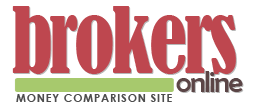FAQ Home | General Questions | Critical Illness Insurance | Life Insurance | Home and Contents
Mortgage Payment Protection | Mortgage Life Insurance | Short Term Income Protection Insurance
Mortgages | Car Insurance | Loans | Private Medical Insurance | Travel Insurance
Hot Topics
- What Happens During The Mortgage Application Process?
- The mortgage application process, once underway, does not take very long. Once you have decided to go with a certain lender and signed a purchase contract, the lender will run a full credit check verifying your income, liabilities and your ability to repay the loan.
- How Much Is The Valuation Fee?
- The Valuation fee covers the expense of the mortgage lender visiting your prospective property to ensure that it is worth what you are intending to pay.
- What Happens If I Have No Proof Of Income?
- If you are self-employed and cannot provide any proof of income – you will have to self-certify your income. In most cases you will need to provide an accountant’s certificate as proof of income.
- What Are ISA Mortgages?
- If you take out an intrest only mortgage your lender will expect you to put in place a ‘financial vehicle’ capable of repaying your mortgage at the end of the mortgage term.
- What Happens If I Have Bank Defaults?
- If you have failed to meet payments on a credit agreement such as secured loans, unsecured/personal loans, credit cards, store cards or car finances etc, or you have failed to comply with your lender’s requirements, you will be described as having 'defaulted'.
What Happens During The Mortgage Application Process?
The mortgage application process, once underway, does not take very long. Once you have decided to go with a certain lender and signed a purchase contract, the lender will run a full credit check verifying your income, liabilities and your ability to repay the loan.
You will need to go for a loan interview with most bank and building society lenders - and at the interview you will take your signed copy of the purchase contract. The purchase contract will specify the amount of your deposit, the price you have agreed to pay for your house, and your proposed closing date of the mortgage term. When you go to the loan interview the mortgage lender will use all this information to calculate whether the house you want to buy can serve as collateral for the amount of money you wish to borrow.
At this point the mortgage lender will also check your Credit Report, so it’s a good idea to check your credit report before you apply to make sure there are no errors, as this could easily hamper your ability to get a mortgage.
Typically, you will complete the Uniform Residential Loan Application at your loan interview. This is widely used in the mortgage industry, and it is at this point that you will probably be required to pay an application/arrangement fee and the valuation fee.
- Where can i buy a mortgage ?
- How Do I Switch Mortgages?
- How long are mortgages usually for ?
- How Is Interest Calculated On a Mortgage?
- Can I Get a Mortgage With A Group Of Friends?
- What happens if i want to move home ?
- Will I Have To Pay An Arrangement Fee And How Much Will It Be?
- What is a remortgage ?
1st Time Buyer - Buy to Let Mortgages - Capped Rate Mortgages - Discount Mortgages - Fixed Rate Mortgages - Flexible Mortgages - ISA Mortgages - Low Setup Cost Mortgages - Self Cert Mortgages - Tracker Mortgages - 100% Mortgages Cashback Mortgages - Adverse Credit - Buy to Let - Commercial Mortgages - Company Directors - Equity Release - Fixed Rate Mortgages - Income Multiples - Interest Rates Explained - Mortgage Glossary - Mortgages Explained - Previously Declined - Refinance Mortgages - Repaying Mortgages - Right to Buy Mortgages - Self Employed - Unusual Properties - Variable Rate Mortgages




